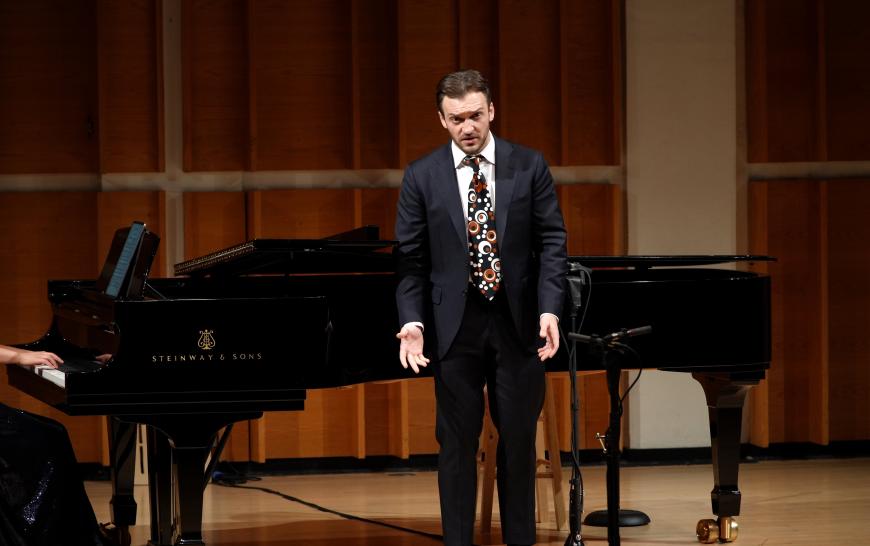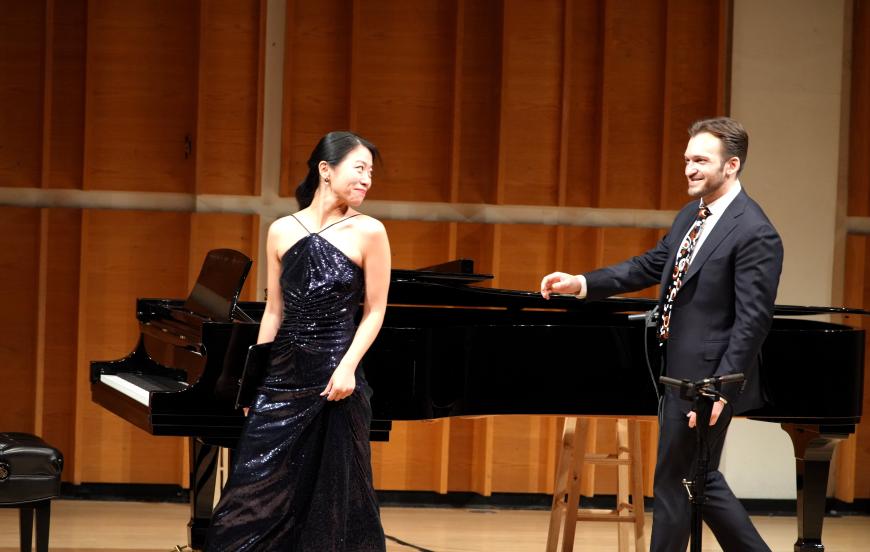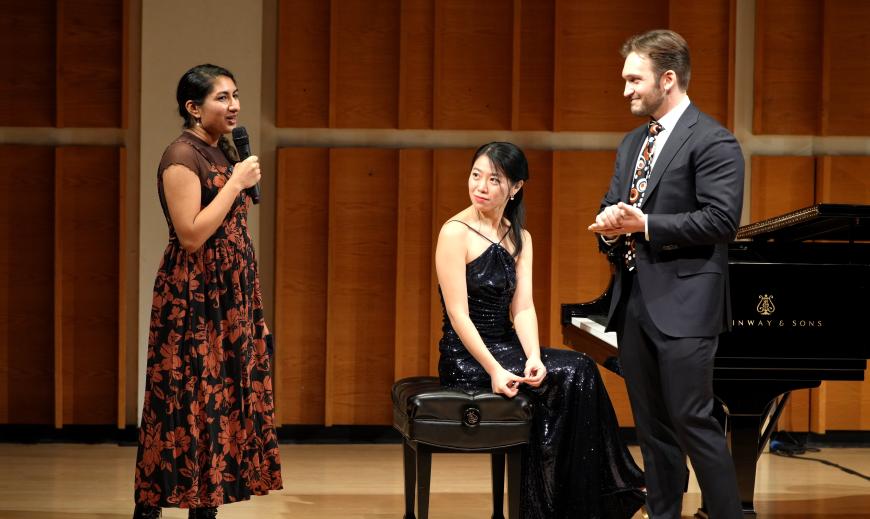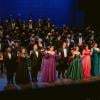
Every two years, the Rubin Institute for Music Criticism convenes in San Francisco, teaching music students across the U.S. about music journalism. SF Classical Voice has partnered with the Rubin Institute to give the program’s top writers more experience in the field with an internship. This year’s Rubin winners, Emery Kerekes and Lev Mamuya, will be with SFCV for six months, reporting from New York and Boston, respectively.
For more than 60 years, Young Concert Artists (YCA) has sponsored an annual, international search for tomorrow’s classical music stars. It’s one of the scene’s highest-profile audition processes: Previous winners include Pinchas Zukerman, Emanuel Ax, Dawn Upshaw, and more recently, Julia Bullock and Randall Goosby.
One of YCA’s newest artists, the 30-year-old tenor Daniel McGrew, made an auspicious debut alongside pianist Sophia Zhou on Dec. 8 at New York City’s Merkin Hall. The pair had been at The Kennedy Center in Washington, D.C., two days prior — all YCA winners receive first outings with recitals in D.C. and New York. The duo’s eclectic program blurred the bounds of folk, art, and popular music from Brahms to present.

The performance was a resounding success. By final curtain, McGrew had announced himself as an irresistible force of the recital stage. His voice floated and soared with unfettered radiance: light and fluid, yet uncannily full. McGrew’s sound is supremely honest, a pure, straightforward use of an instrument that aspires to emulate no other singer. It’s a crystal-clear blank slate, at home in any genre. The effortless high notes that flew over the lapping waves of Claude Debussy’s Trois mélodies de Verlaine also gave a closing Harold Arlen set its flash. Even when the music called for a more pointed attack (for instance, as a whiny child in selections from Brahms’s late German folk settings), the singer’s snarls never lost their shimmer.
From the stage, McGrew projected an exaggerated charm that never read boorish or cloying. It was as if every affect, feeling, and mood struck the tenor uniquely in the moment. In between the verses of the Brahms volkslied that opened the program (a dialogue between a hopeful romantic and the uninterested object of his affection), McGrew paused for a hilariously teenaged eyeroll. The fickle, stream-of-consciousness jumps of Frank O’Hara’s poetry, in cabaret-ish settings by Christopher Berg, poured out glibly from the tenor’s mouth, humorous quips thrown off as if entirely improvised. And in Benjamin Britten’s Holy Sonnets of John Donne, the singer struck a key balance between distanced reverence and proximal familiarity. Anglican cleric Donne, McGrew pointed out, trod the same line in his day.

In his opening remarks, McGrew framed his recital as a celebration of song itself rather than a rumination on any particular subject. Song, he said, is one of music’s unique ways of bringing buried emotion to the surface. Nowhere was that more obvious than in Pieces of You, YCA composer-in-residence Nina Shekhar’s brand-new mini-cantata that set fragments of McGrew’s (self-professedly) angsty teenage poems. It’s a piece that thrives on neurosis: For the first few minutes of the performance, McGrew chanted and whispered the same few phrases over and over, the piano part gaining steam below him. Eventually, the accompaniment pushed the vocal line out of its trance, ushering it between broad, expansive howls with glacial twinkle. The childish clamors of McGrew’s Brahms captured the text’s unsatisfactory introspection. And as Zhou’s piano underpinned a final recitative of sorts with tender rolled chords, the tenor tempered his voice to a haunting whimper.
Zhou was an excellent partner throughout, her style as protean as the tenor’s. One moment, her Debussy arpeggios charged with warm triumph; the next, she gave Britten’s stark, two-pitch accompaniments the wide-eyed, meandering bewilderment of a lost child. And she played into some of McGrew’s ham — as he plopped himself on the corner of her piano bench for Arlen’s “Buds Won’t Bud,” she gave him the knowing grin of a willing accomplice.
Though McGrew tried to resist an encore, the audience clapped ever harder. He eventually settled for the simple thanksgiving scene from Schubert’s Die schöne Müllerin: “Now I have enough for hands and heart; enough, and more besides.” But there is no “enough” of Daniel McGrew. If he comes to town, clear your schedule.


